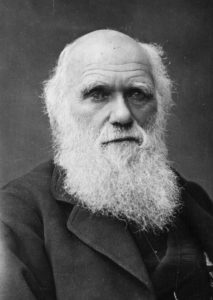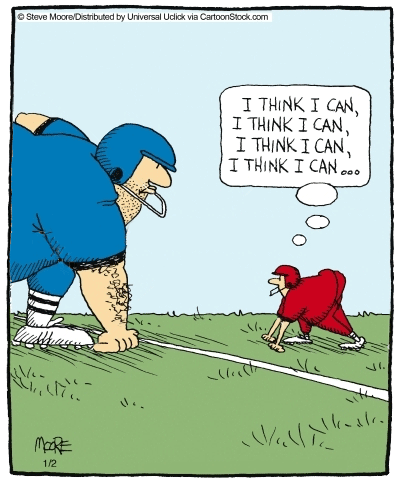

The long-held, common belief among theorists in the gifted arena is that a small percentage of the human population is born with a genetic potential for exceling in specific areas of human endeavors, such as art or science. The aim of gifted education, then, is to identify and nurture this potential in these gifted individuals.
Some people, within and without gifted education, argue that all people are born a blank slate – a tabula rasa – and that giftedness arises as the result of favorable developmental factors. In essence, giftedness is learned.
I’d like to offer my own perspective on the subject, as it was a topic of discussion in one of my classes this past Spring, and the subject has lingered in my mind. I largely favor the former view, rather than the latter.
That is not to say that I don’t give credence to the value of nurture; I certainly do and don’t subscribe to the idea that genius is solely born, not made. An aptitude must be nurtured before it can become a talent. No matter how genetically pre-disposed you are to intelligence, for example, the average person will still end up smarter than you if he or she receives a good education and you do not. What is true is that you have the potential to go farther.
However, I am somewhat amused when confronted with academics and intellectuals who are quick to recognize that people can be born with disabilities, including exceptional mental disabilities, but refuse to recognize the other side to that coin – that people can also be born with abilities, including exceptional mental abilities. If there are outliers on one end of the bell curve, so must there be outliers on the other end.
My reasons for supporting the nativist position begin with Charles Darwin and his theory of natural selection.
The notion of giftedness (although not called as such) can be found in Darwin’s theory of natural selection. Darwin’s theory is predicated on the idea that within every living species, there are variations in attributes. Some of those variations are favorable and some are not, while all are heritable. When an organism is born possessed of exceptional attributes that allow it to survive and outperform others within its species, it flourishes and reproduces. In terms of giftedness, it is a metaphorical survival of the fittest – those who excel within particular talent domains survive and flourish.

Although Darwin avoided the discussion of man in Origin of Species, his theory encompasses the whole of organismic life in nature. That includes human beings. However, some have argued that Darwin was against the notion that one man could be innately gifted over another. In one example, a paper defending that position opened with a quote from Darwin:
“I have always maintained that, excepting fools, men did not differ much in [talent], only in zeal and hard work; I still think this is an eminently important difference.”
The problem, of course, is that the quote is a mischaracterization of a statement made by Darwin. The exact quote, from The Letters of Charles Darwin, is a response to a reading of his cousin Francis Galton’s book, Hereditary Genius, which posited a heritable factor in intelligence. Wrote Darwin to Galton:
“You have made a convert of an opponent in one sense, for I have always maintained that, excepting fools, men did not differ much in intellect, only in zeal and hard work; and I still think this is an eminently important difference.” (Letter #410)
The implication, when you include the entire sentence, is that Galton’s argument did sway Darwin’s opinion – at least to a degree. In a letter to Galton some years later, Darwin appears to accept the notion that heredity is a factor in intelligence. At the same time, he takes exception with Galton’s argument that it might fall across racial lines. Wrote Darwin:
“Surely Nature does not more carefully regard races than individuals, as (I believe I have misunderstood what you mean) evidenced by the multitude of races and species which have become extinct. Would it not be truer to say that Nature cares only for the superior individuals and then makes her new and better races?” (Letter #412)
And later, in his follow-up to Origin of Species, titled The Descent of Man, Darwin firmly acknowledges acceptance of Galton’s position:
“We now know, through the admirable labours of Mr. Galton, that genius, which implies a wonderfully complex combination of high faculties, tends to be inherited.”
That is a view that seems to be somewhat supported by the Flynn Effect, which describes the progressive increase in IQ scores over generations. Here, in another passage from The Descent of Man, Darwin appears to predict the Flynn Effect:
“In the case of corporeal structures, it is the selection of the slightly better-endowed and the elimination of the slightly less well-endowed individuals, and not the preservation of strongly-marked and rare anomalies, that leads to the advancement of a species. So it will be with the intellectual faculties, since the somewhat abler men in each grade of society succeed rather better than the less able, and consequently increase in number, if not otherwise prevented. When in any nation the standard of intellect and the number of intellectual men have increased, we may expect from the law of the deviation from an average, that prodigies of genius will, as shewn by Mr. Galton, appear somewhat more frequently than before.”
While there are certainly other causal factors to explain the Flynn Effect, such as improved educational methods, evolving genetics cannot simply be disregarded. Conversely, there is evidence to suggest that, just as intelligence continues to increase in the general population, physical strength decreases. A 2012 study published in the Proceedings of the National Academy of Sciences found that humans have grown weaker since the Nineteenth Century. The move to an industrialized society has placed more value on intelligence and talent rather than brute strength.
There are other indications supporting the heritability of talent and intellect. We have great institutions for the development of talent, for example, and the students of these institutions go through the same curriculum. Yet, not all of them (and, in fact, very few of them) become notable for their talent and contributions. Why, if they encounter the same developmental assistance, do they have differing outcomes? Those who argue the tabula rasa viewpoint may suggest that there were other formative experiences that enabled the talent, such as parental influence. But what about those individuals who distinguish themselves with little to no developmental help – in fact, in the face of great adversity? How does the tabula rasa viewpoint address those cases?
As the cognitive scientist Gary Marcus points out in his 2004 book, The Birth of Mind: The initial organization of the brain does not rely that much on experience; the nativists are right to think that the slate is not blank.” He goes on to say, “Nature provides a first draft which experience then revises” and “the basic structure of the brain depends only minimally on experience.”
Most recently, in a 2009 edition of Behavior Genetics, researchers reported the results of a study that suggest that, “Genetic factors contribute to a large extent to variation in aptitude and talent across different domains of intellectual, creative, and sports abilities.”
 Sports is an excellent example, as the differences are physically apparent. Can absolutely anyone become a professional American football player, provided that they are given the right environment to develop? I would argue no, because, regardless of development, you have to have the right physical attributes to perform in the sport, and that is limited by genetics. Nature does not give every man the physical capacity to be a linebacker, nor does it give every man the intellectual capacity to be a quantum physicist. While we are quick to acknowledge the physical realities of variance and how this ties into talent domains, we are reluctant to acknowledge that the same process of variation occurs in the mind as well.
Sports is an excellent example, as the differences are physically apparent. Can absolutely anyone become a professional American football player, provided that they are given the right environment to develop? I would argue no, because, regardless of development, you have to have the right physical attributes to perform in the sport, and that is limited by genetics. Nature does not give every man the physical capacity to be a linebacker, nor does it give every man the intellectual capacity to be a quantum physicist. While we are quick to acknowledge the physical realities of variance and how this ties into talent domains, we are reluctant to acknowledge that the same process of variation occurs in the mind as well.
Being gifted is not simply the product of the right environment and guidance – there has to be something exceptional that the gifted are born with that the average person does not possess – at the very least, a variation on the capacity for development. Therefore, the naysayers who deny inherent giftedness – to some extent – deny the variation of natural selection itself.
The nature and the nurture camps both underplay the value of the other. I believe that, ultimately, this is a disservice to the gifted. Consideration needs to be given to both factors when trying to understand the nature of giftedness.
In closing, I leave you with another quote for Gary Marcus, from his book, The Birth of Mind: “The second biggest misconception people harbor about genetics: that it will be possible one day to determine once and for all, whether nature or nurture is ‘more important’. Genes are useless without environment, and no organism could make any use of the environment at all if it were not for its genes.”

This is brilliant:
“However, I am somewhat amused when confronted with academics and intellectuals who are quick to recognize that people can be born with disabilities, including exceptional mental disabilities, but refuse to recognize the other side to that coin – that people can also be born with abilities, including exceptional mental abilities”
I also find it interesting that most discussions of neurological/intellectual difference focus on pathology rather than diversity. Great post. 🙂
First we must remember the bell curve and the fact that human intelligence has a multitude of contributing factors. In the bell curve we see distribution rather than black and white. Nurture nature? I believe we are born slotted in a genetic window so to say. This gives us control through effort as to where we mark with in the window. Example I was an unmotivated teen with little to no nurturing. My highschool records show an IQ of 119. Later in life and after years of counseling plus three college degrees. I found I had an IQ that measured 140.